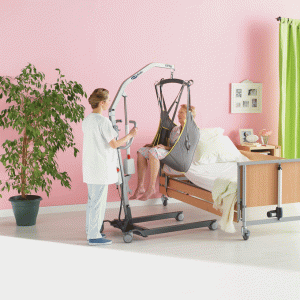BackCare Awareness Week
3 - 8 October 2016
Organised by BackCare, a charity for healthier backs, the event aims to raise awareness of the problems that back pain can cause, as well as prevention and treatments.
It's thought that 4 out of every 5 adults will experience back pain at some point in their life, and over 70% of the UK’s 7 million unpaid carers now suffer from back pain whilst 52% have reported that their physical health has been affected by caring. This increased exposure to back pain puts carers at greater risk of developing ongoing chronic pain, which is highly disabling in a third of cases and can also be life-long. Carers are susceptible to back pain due to the care and support they provide to others on an ongoing basis and for this reason, BackCare Awareness Week 2016 is dedicated to ‘Caring for Carers’.
Listed below are a number of ways in which carers can reduce their risk of developing back pain, however greater advice on prevention and treatments can be found at http://www.backcare.org.uk/i-have-back-or-neck-pain/.
Care for your back
Driving can trigger back pain, particularly if you are driving long distances. When driving to appointments or running errands, you can adjust the seat before setting off to eliminate straining your back when reaching for the wheel or pedals. Placing a lumbar roll in the small of the back can provide support when driving. Even something as simple as wearing comfortable, flat shoes can help to stop cramp and to minimise any pressure on the ankles.
Manual handling
If you are pushing or lifting, it's important to prepare your back to ensure that you do not strain or pull any muscles. When lifting, make sure that your knees are bent and that you keep the weight of the person you are lifting close to your body. If possible, try not to twist your spine and just let it move as it needs to. If you are able to, try and distribute the weight being carried evenly in your hands.
![]()
Improve your posture
Poor posture can increase the risk of back problems by putting extra strain on the back. This extra strain can affect muscles, ligaments, tendons and vertebrae whilst in the long term, this can cause painful problems such as muscle, joint and disc damage whilst also causing constricted vessels and nerves.
Being aware of how you sit and stand can greatly improve your posture. When standing, keep your head facing forward and your back straight. When sitting, make sure you are upright with your knees and hips level and your feet flat on the floor or on a footstool. Be careful not to hunch your shoulders or slump in your chair and if sitting for long periods of time, be sure to keep your back well supported using the back of the chair.
To order your BackCare Awareness Week Pack, please click here.
For more information on preventing back pain, please visit the following links:
National Back Exchange (http://www.nationalbackexchange.org/)
NHS Top 10 Back Care Tips (http://www.nhs.uk/Livewell/Backpain/Pages/Topbacktips.aspx)
Taking Care of Your Back (https://carers.org/article/backcare)





